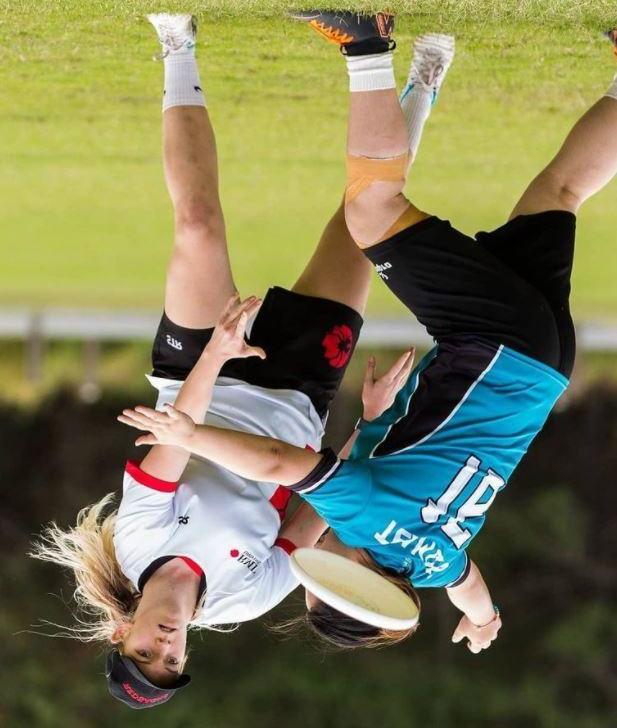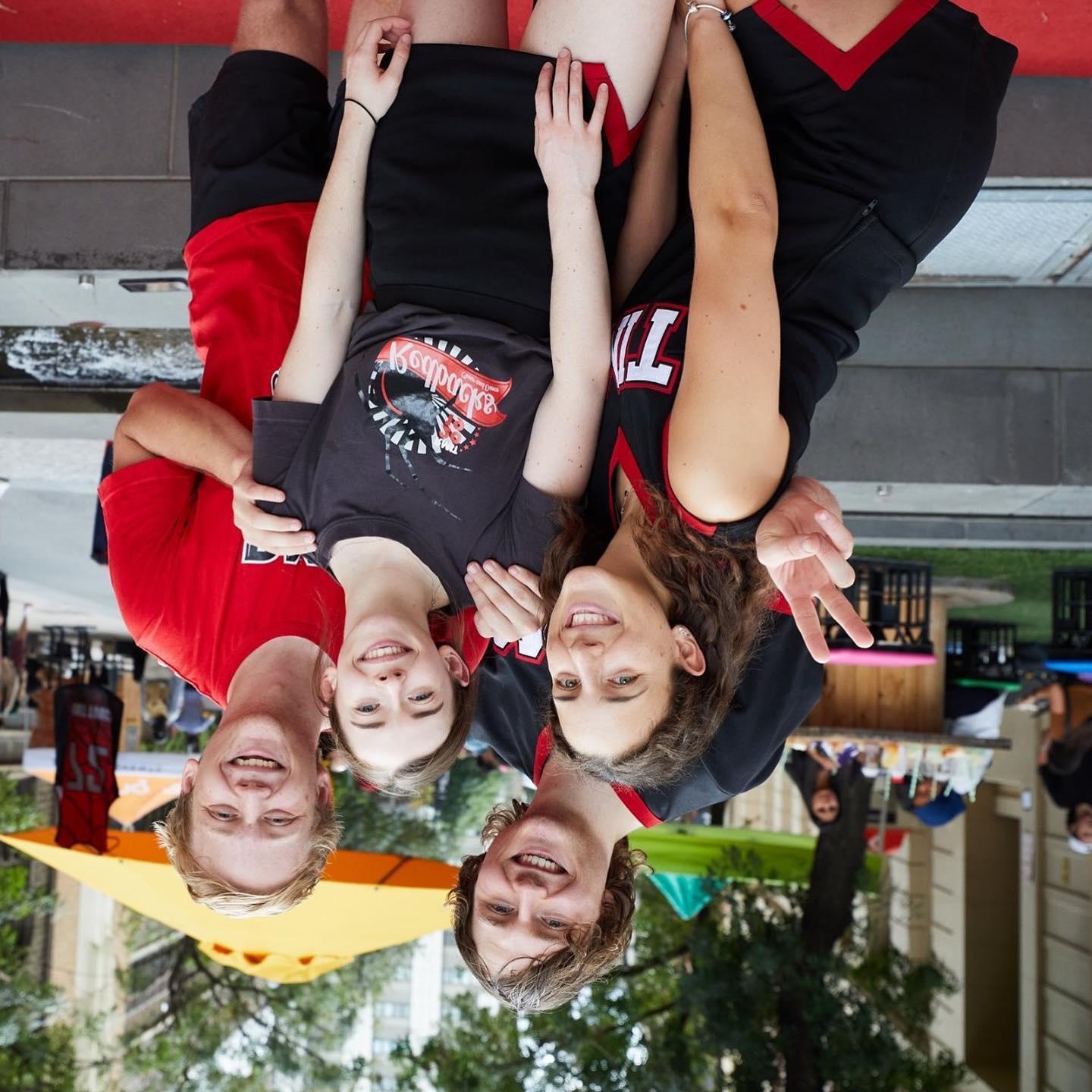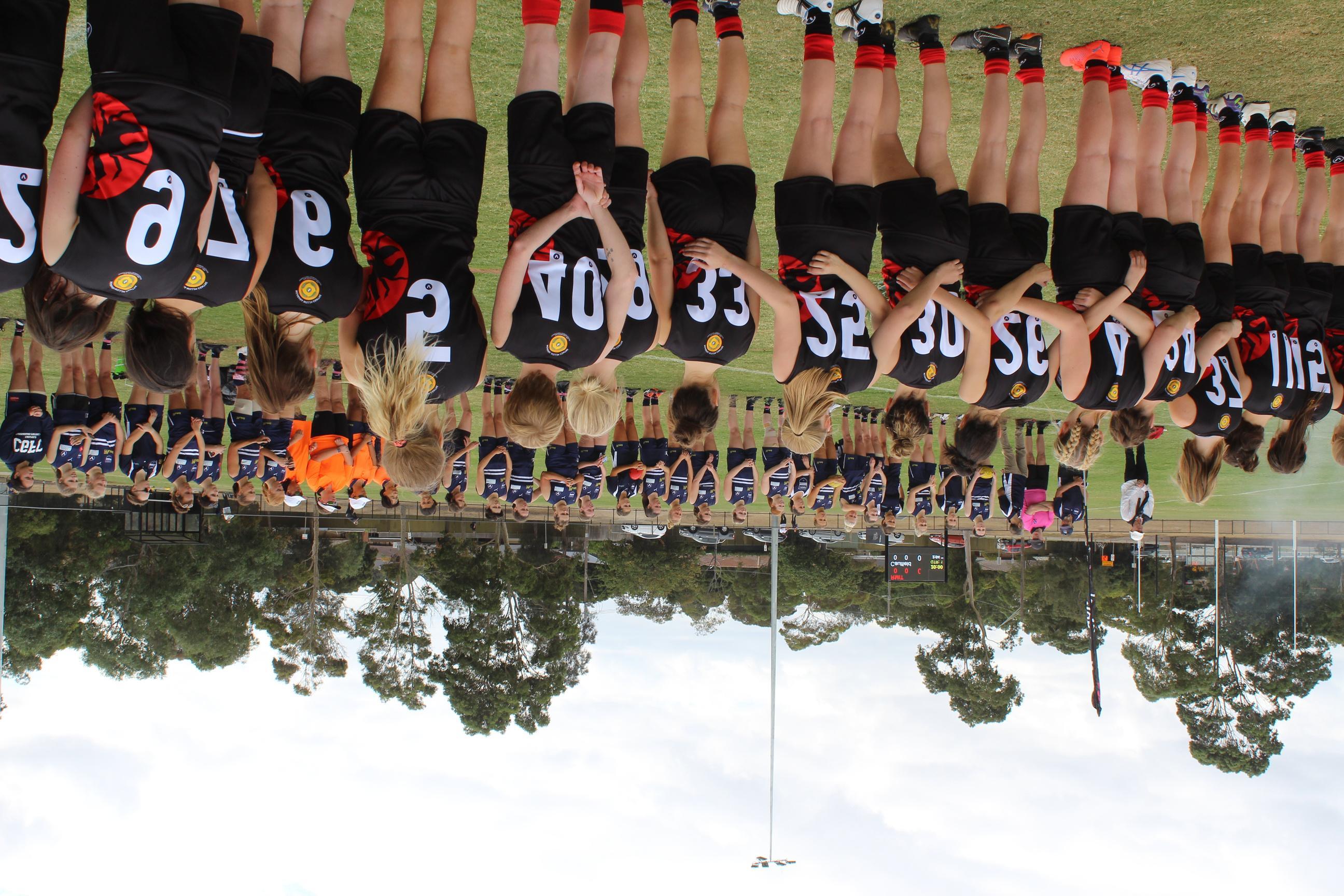
23 minute read
Policy and Conduct
by redbacks
3
Mental Health and Well being The path of study often takes twists and turns. Some stressors are unexpected and easily managed, while others are great and epically challenging. During study, 1 in 4 students are dealing with a mental health issue each year, most commonly anxiety, depression and substance use issues. Sports and clubs play an important role as spaces for connection, meaning, contribution, play and physical movement. As protective factors for our mental wellbeing, sports clubs can make a big difference for people experiencing a mental health condition.
Advertisement
To learn more about emotional health and mental wellbeing during study, complete the CANVAS Mental Wellbeing Essentials module. This is available to all students. It offers guidance and practical tips on how you can look after your mental health whilst you are studying, and also how you can assist other students who might be struggling.
To access the module, go to: rmit.instructure.com/courses/71226 (Note that you need to be logged in to Canvas to see the Course modules)
To be proactive in making sure your club is inclusive for people who may be struggling psychologically or emotionally, ensure that:
To be proactive in making sure your club is inclusive for people who may be struggling psychologically or emotionally, ensure that:
Club leaders and members have a good understanding about mental health issues, stigma and supports. That it’s okay not to be okay. Club leaders communicate they have completed RMIT training on Mental Wellbeing Essentials and know the RMIT supports available. Club leaders understand the boundaries of their role. That they are visible, encourage support seeking and open about supports available. Members know about the five ways to wellbeing resources for promoting mental health. To connect with RMIT Wellbeing for guidance around planning events or speakers on mental health awareness or suicide awareness.
Tip: Remember, psychological or emotional stress and distress is not always visible*.Take a moment to consider how you can signal a welcoming environment for someone who may be struggling, and opportunities to share information on supports and mental wellbeing.
3
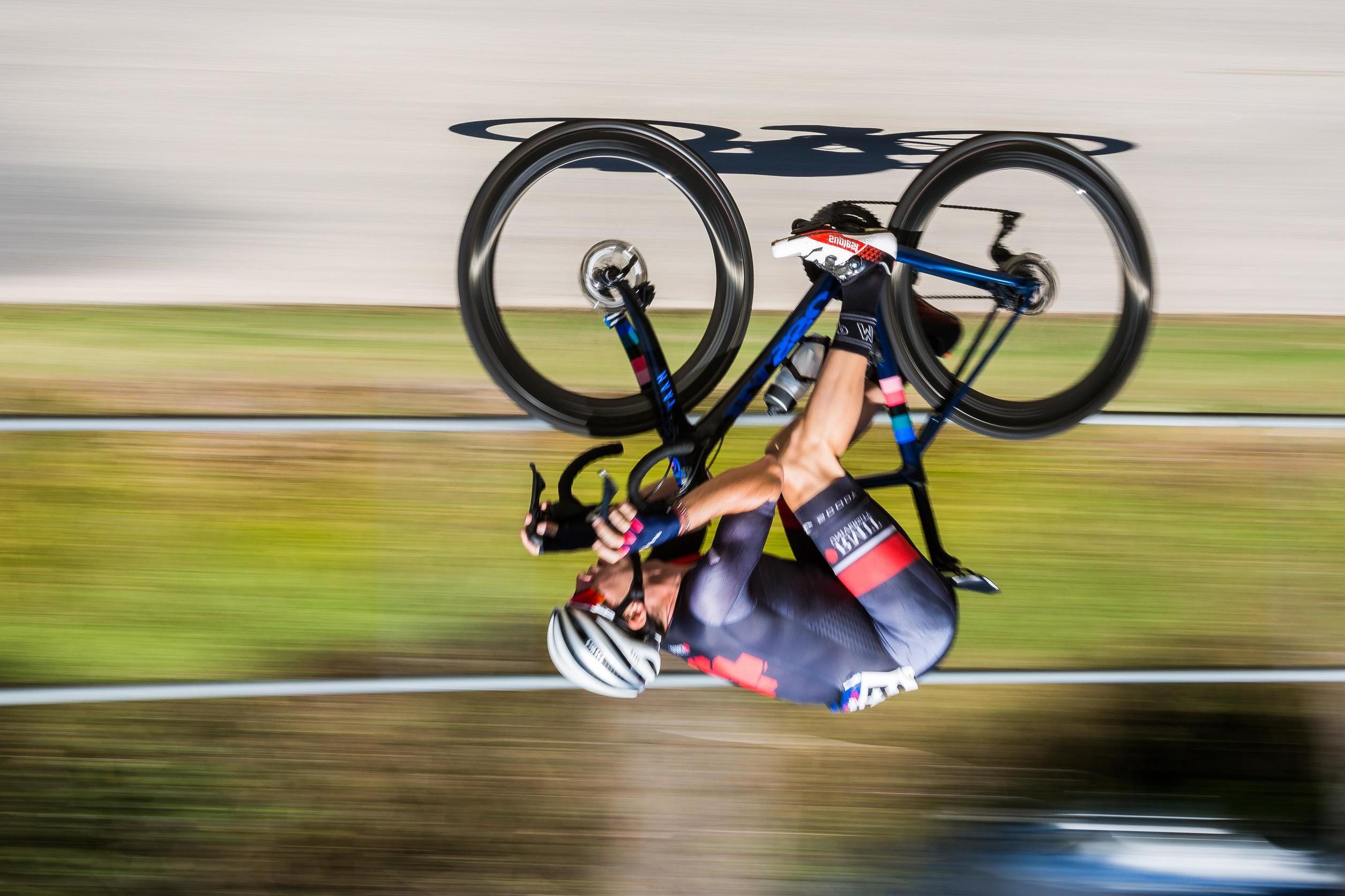
All year, RMIT Together
CANVAS Mental Wellbeing Essentials
May, University Mental Health Day
15 – 21 June, Men’s Health Week
10 September, RUOK day
10 October, World Mental Health Day
November, Movember men's mental health
* General principle: e.g. MH conditions, disabilities, sexuality etc are not always visible, and it’s important not to make judgements based on stereotypes and appearances as this can increase stigma.
4
Disability RMIT Sport clubs are expected to make their club as accessible as possible, and to take action to include people with disability in both playing and non-playing roles. To make someone with disability feel welcome it is important to remember that everyone is different and will have individual preferences. It is not necessary to have an in-depth knowledge of all the different types of disability, it is more beneficial to focus on the individual’s needs- they are the expert and will be able to let you know what will support their participation. e.g. will they need ramp access, instructions in simple/direct language, visual rather than verbal cues, options to take out or a rest break.
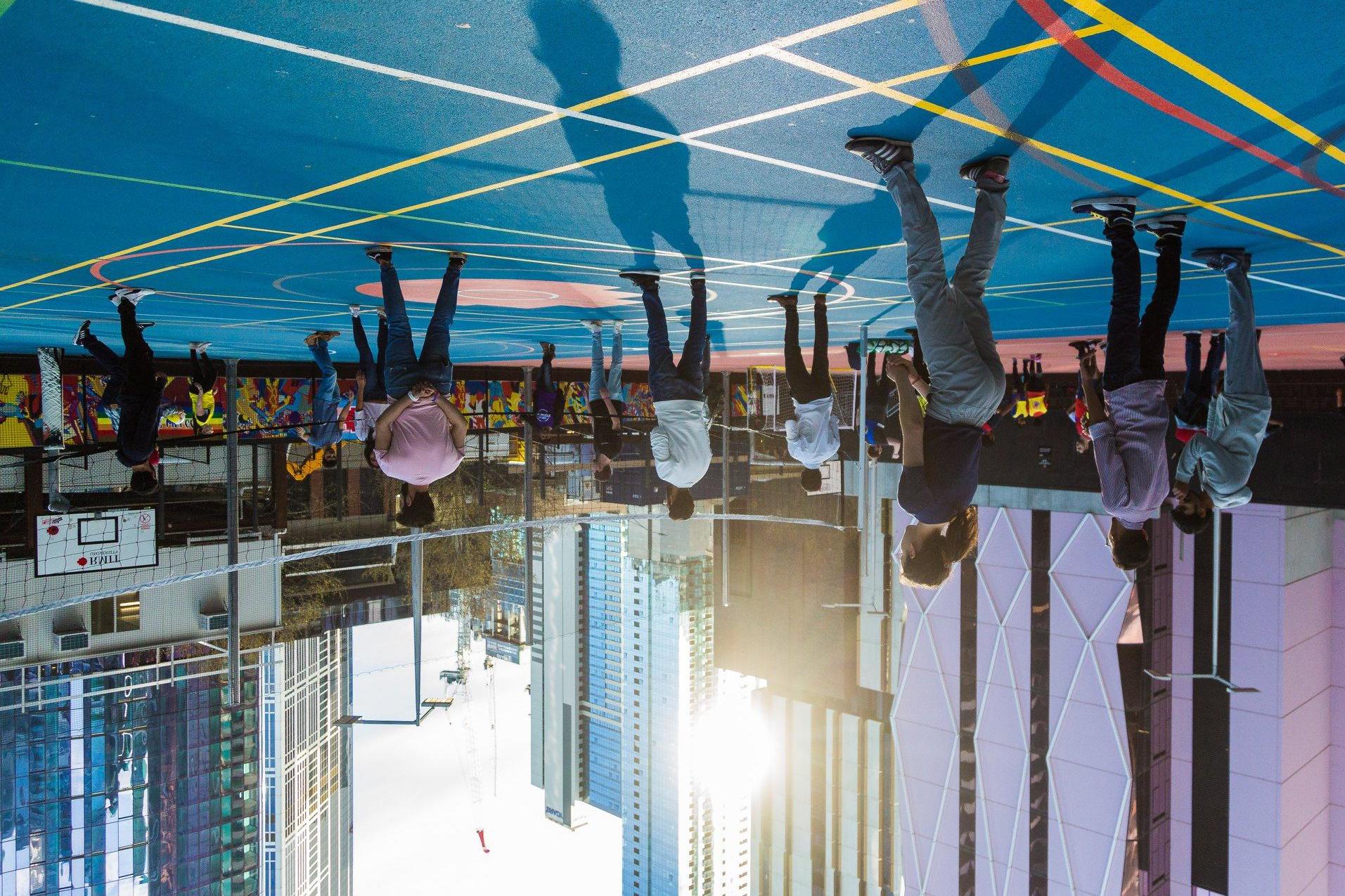
Communication about Community Members with a Disability The best practice use of language when referring to people with disability is person-first and impairment second.
Using person-centered language: A person is not defined by their ability or one single attribute of their identity. This means paying attention to the words we use to describe others and using language that does not frame disability as a limitation or as an inspiration simply for living with disability. Always speak to the person directly and not to anyone else that might be assisting or accompanying them. When meeting with or speaking to somebody who uses a wheelchair, you may wish to choose a location where you can sit down too, so that you can put yourself at the same level as the person.
4
DON'T USE
Disabled
Deaf
ACCEPTABLE ALTERNATIVES
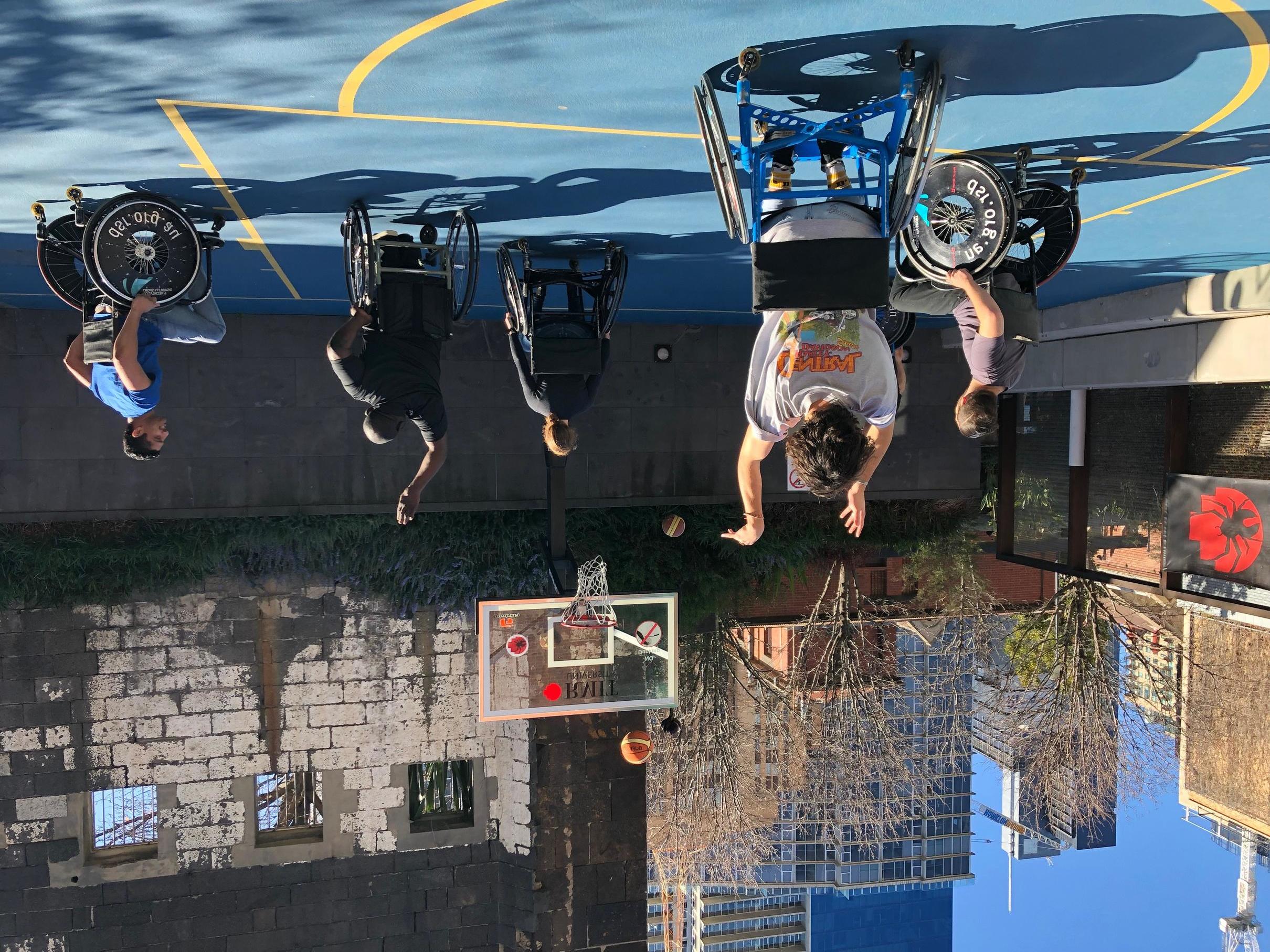
People with a Disability
Person who is deaf or hard of hearing
Blind (the), visually impaired(the)
Wheelchair bound
Suffer from, afflicted with 'condition' Person who is blind, person with partial sight
Wheelchair user, person who use a wheelchair
Person has/with 'condition'
Physically/mentally/vertically challenged: Person with disability differently abled (these are euphemistic and patronising)
Special (this is demeaning and child like) Person with disability
Disabled park/toilet Disability accessible park/ accessible toilet
Tip: Take a moment to consider what barriers currently exist in your sport that may stop someone with disability from participating. Rather than waiting for someone with disability to make a request, take proactive actions to remove these barriers.
Support and promote disability awareness initiatives such as: 3 December, International Day of Persons with Disabilities of body text
5
Gender Equity Women are still very under-represented in organised sport as participants, coaches, officials, administrators, and board members. We encourage our all clubs to plan with awareness of the barriers to female participation in mind:
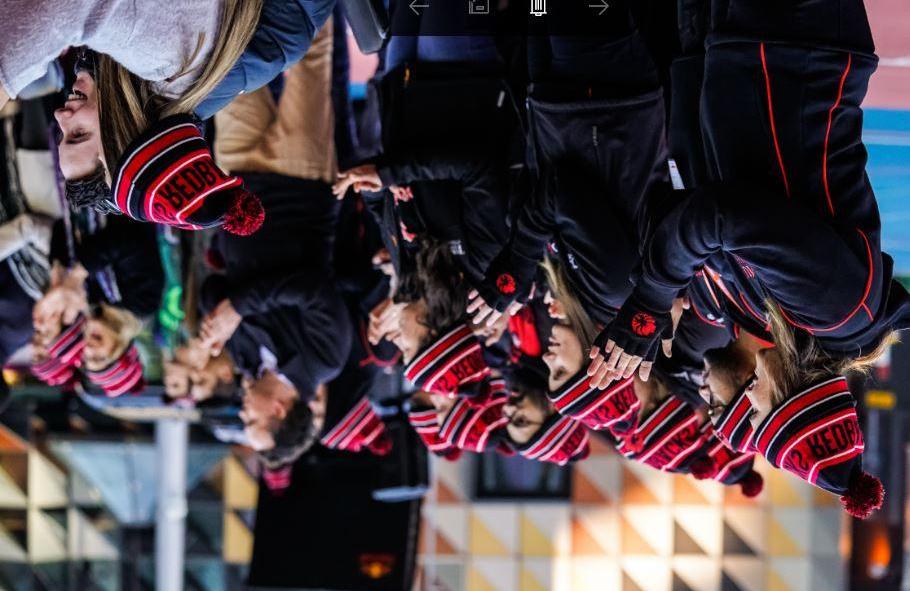
Cultural barriers (such as gender roles/expectations, competitive male orientated sport) Sense of belonging, lack of female representation in committees / leadership roles Family / caring responsibilities Access barriers (time, facilities, transport, cost) Lack of entry level and pathway opportunities
Tip: When thinking about supporting women in sport, consider an intersectional approach to ensure all women including non-binary and trans women are invited along. If you are hosting an event for women, you may want to include text such as this to ensure this message is clear:
5
Supporting participation In response to the barriers listed in the page above, here are some recommendations that you can embed into the delivery of your clubs games, events and programs to support participating from women.

Challenge assumptions to start breaking down cultural barriers in sport by asking ‘What are misconceptions and stereotypes of my sport?” and then “How can I challenge these misconceptions and stereotypes”. For example, ‘Muslim women can’t swim in public spaces so they won’t want to participate in the swim club.” could be challenged by “Muslim women have a right to make their own decisions about swim attire and where they would like to swim and this decision should not be made for them based on an exclusionary misconception about Muslim culture.”
Due to femme invisibility in media and a lack of female role models in sports, girls and women struggle to see themselves a part of the sporting community, even before they have had a chance to decide for themselves. To tackle this it’s important to elevate femme and female voices and identities in ambassador, role model and leadership roles. This means giving them opportunities to tell their story, share their profiles and celebrate their achievements and spotlighting campaigns that uplift women in sport.
Women who are primary carers for children or other family members may face additional challenges when it comes to finding time to participate in sports including a lack of childcare and time. This can be combated by providing programs where childcare or a crèche is available. Running a ‘Mums and Bubs’ session is also helpful to support women who may share responsibilities whilst participating.
Some sports are a lot more expensive and inaccessible that others, especially if sporting equipment and facilities are involved. Consider what the club can do to support participation by removing some of these barriers. This could include purchasing club equipment that can be hired out for free, using facilities that are free or low cost to use, finding venues near public transport and offering tickets to events on a sliding scale.
5

Support and promote women in sport events such as:
8 March, International Women’s Day
Elite Women’s Sport major events / achievements as they happen
Opportunities #BecauseSheCan: Female-friendly ways for students and staff to get active! A major part of not trying new activities or getting involved in sport is the fear of being judged, or not being fit enough to start. At RMIT we want to get women moving in a safe, inclusive and fun way. Inspired by the #ThisGirlCan - Victoria campaign, with so many different options available, we want the women of RMIT to embrace physical activity in a way that suits them.
Tips for hosting a Women’s Round The key to hosting events for underrepresented group is avoid further segregation, instead focus on supporting inclusion and elevating the group you are seeking to support. Here are some practical tips to help you host a women’s round:
1.Nominate women to take on leadership, decision-making and role model positions in coordinating your event. This might mean bringing women from diverse backgrounds together and nominating women athletes, coaches and referees to deliver the event.
2. Consider how the event is promoted and shared so that it stands out from regular programming. Perhaps you choose a different colour variation of your club logo (avoiding pink/red stereotypes) or maybe it’s in the title, ‘Thursday Tennis: Women’s Night’ so it’s clear what the intention of this event is.
3. Ask yourself, what barriers will I tackle in hosting this event? Read section 5.1 and take the time to consider what can be done to tackle one of more of these barriers. There is no expectation that all of these barriers can be smashed at once so approach it systematically one at a time.
4. Seek support from an Inclusive Sport Champion at RMIT Sport to find out how you can align your event with a campaign (see section 5.4) and partner with other groups that support similar initiatives.
6DIVERSE GENDERS, SEXES AND SEXUALITIES
Terminology
Ally: A person who supports, respects and advocates for another person or community for a common purpose.
Asexual: Experiencing little or no sexual attraction to others and/or a lack of interest in sexual relationships/behavior.
Bi-gender: A person who fluctuates between the binary “woman” and “man” gender-based behavior and identities, identifying with two genders.
Bisexual: A person who is emotionally, romantically or sexually attracted to the gender the same as their own and to other genders.
Cisgender or cis: A term that describes a person whose gender identity aligns with the gender assigned to them at birth.
DGSS: Reflecting the diversity of our community beyond the ‘LGBTQ+’ label, RMIT refers to people of ‘diverse genders, sexes, and sexualities’ as DGSS.
Gay: A term used to describe individuals who are primarily emotionally, physically, and/or sexually attracted to members of the same sex.
Gender affirmation: Associated with gender diversity or transgender identities, gender affirmation is an individual process someone goes through to affirm and express their identified gender.
Genderfluid: A gender identity best described as a dynamic mix of gender identities. A person may identify with a different gender throughout their life.
Genderqueer: An umbrella term for many gender non-conforming or non-binary identities (e.g., agender, bigender, genderfluid).
Intersex: People who are born with naturally occurring variations in chromosomes, hormones, genitalia and other sex characteristics.
Lesbian: A woman who is emotionally, romantically or sexually attracted to women.
Misgender: This occurs when people are addressing someone and using language that does not align with their gender identity. This can include the use of incorrect pronouns.
Non-binary: A person whose gender identity lies outside the binary of man or woman.
Pansexual: Describes someone who has the potential for emotional, romantic or sexual attraction to people regardless of sex or gender.
Transgender trans: Someone who does not exclusively identify with the gender they were assigned at birth. Trans and transgender are both accepted terms.
Queer: People who identify with a flexible and inclusive view of gender and/or sexuality. Also used interchangeably to describe the LGBTIQ+ community
Homophobia / biphobia / interphobia / transphobia: Unreasoning fear or hostility, prejudice and discrimination against people who are gay or lesbian / bisexual / intersex / transgender or gender diverse.
6
DGSS Inclusive Language Language shapes our understanding of topics and how we interact with others. Using inclusive language ensures we do not leave anyone out of our events and programs and individuals are seen, heard, and invited along.
Using gender neutral language: Communication plays a key role in this. Telling a teammate to ‘man up’ or that they ‘run like a girl’ both use outdated gender stereotypes and are likely to cause offence. This sort of language can also shape an understanding of what individuals believe they can achieve based on gender stereotypes. When addressing a group of people, terms such as ‘hey guys’ can easily be replaced with gender neutral options such as team, folks, friends, mates and many more.
Respecting pronouns: A person who identifies as trans, non-binary or gender diverse may not use binary pronouns such as they/them/theirs. If you do not know what pronouns someone uses, then it is best to ask or use their name when referring to someone in third person. Remember you cannot ‘tell’ if someone is trans, non-binary or gender diverse by looking at them so avoiding assumptions is key. It is okay to ask someone what pronouns they use directly or ask for pronouns on a registration form. Next time you introduce yourself try sharing your pronouns as well.
We recommend the following options when asking for title, sex, and gender data: Title – Ms, Mr and Mx Sex - female, male, intersex, prefer not to disclose Gender - man, woman, non-binary, transgender, gender queer, prefer not to disclose and a free text option
Avoiding stereotypes: Stereotypes regardless of whether they are based on gender identity, sex or sexuality reduces a person to a single characteristic and should be avoided. As well as shaping our belief of people, stereotypes can drive social judgements. Although it is very natural to judge others it is what we do with those thoughts that matter and not allowing them to lead to prejudice or influence how we treat members of our community. In sport this means not assuming women cannot be strong or that gay men do not enjoy sports and so on. The more conscious we are about our unconscious bias, the more we as a community can challenge these harmful stereotypes that hold us back from our full potential.
Learn more: Top Ten Tips to be an Effective Rainbow Ally
DGSS Days of Significance: International days of significance can be a great to align with when hosting an event or match, but not in all cases. Pride Month (June) for example, is often suitable for celebratory events such as a pride round, while 20 November is Transgender Day of Remembrance and may not be a suitable time to host a celebratory event.
6

How to host a pride game Why host a pride game?
Why host a pride game? Whether you have a friend who identifies as DGSS, or you believe in advocating for the community or you yourself identify as part of the community there are many reasons why you may want to host a pride game. You also do not need a reason, as Nelson Mandela famously said,
“Sport has the power to change the world. It has the power to inspire, it has the power to unite people in a way that little else does. It speaks to youth in a language they understand. Sport can create hope, where once there was only despair. It is more powerful than governments in breaking down racial barriers. It laughs in the face of all types of discrimination.”
Hosting a pride game brings community together and reaffirms RMIT’s commitment to DGSS inclusion. A pride game can strengthen your community in ways that will go beyond one single match and amplifies voices of DGSS people, creating more opportunities to invite everyone along.
Note: Although these tips suit a Pride Game you can applies these concepts to elevate and celebrate a broad range of identities. See section 5.5 for tips to support women in sport and section 2.4 for tips to host an Indigenous Round.
Step 1. Get Organised: First things first, make a plan and then set a date or work towards a deadline. Consult with your team or your coach and get everyone on board. Without support it can be difficult to host a pride game alone. If you would like support hosting a pride game but do not know who to speak to or where to start, contact an Inclusive Sport Champion. Once you have rallied enthusiasm for your pride game, here are some other things you may want to consider:
When will this event take place? What day/time? How much time does that allow to prepare and promote? Where will the event take place? Will it be free to attend? Who will be competing/playing/taking part? Is the event a competition or a ‘come and try’? Will there be acknowledgement for the winning team/individual? Who are the key stakeholders that should be notified of this event? How much space is there for spectators? How (if at all) will this game differ from a regular match?
6
Step 2 Raise the flag: It does not take much to host a pride game, but it is important to make sure your message is clear. Embed the inclusive language and event recommendations from this handbook into as much of your preparations as possible from start to finish and the rainbow flags will follow.
If your event is binary in nature (eg. gendered teams), how can you make it more trans and gender diverse inclusive? You may want to add some additional text such as, “Our definition of women/men is inclusive of trans, non-binary and genderqueer women/me and welcome to anyone who identifies this way” to invite everyone along.
If you are hosting an event on a day of significance (eg. Wear it Purple) you may want to consider how this day can be acknowledged. Whether it is via a social media post or an announcement on the day. Remember, what you say as an ally can have a much bigger impact than someone advocating for themselves.
Think of communicating your message in two ways:
Through push communications
Displaying pride flags, banners, and posters at the event
Wearing pride clothing at the event: socks, shoelaces, bibs, beanies etc.
Sending outgoing emails and newsletters to specific mailing lists
Through pull communications
Sharing social media posts via a public forum
An information desk where attendees can learn more about DGSS inclusion
Step 3. Amplify your message: To ensure you make the most of all the work and time you have put into hosting your pride round, document your event so that it can be experienced long after it is finished and shared with the wider community. This not only helps construct a well-rounded message but can build momentum for future rounds. Here are a few ways you can amplify your message once the game is over:
Take plenty photos to document the event Ask your attendees for feedback (eg. an online survey form) Take note of attendance Summarise the event across social media platforms Send a follow up and ‘thank you’ to those who supported
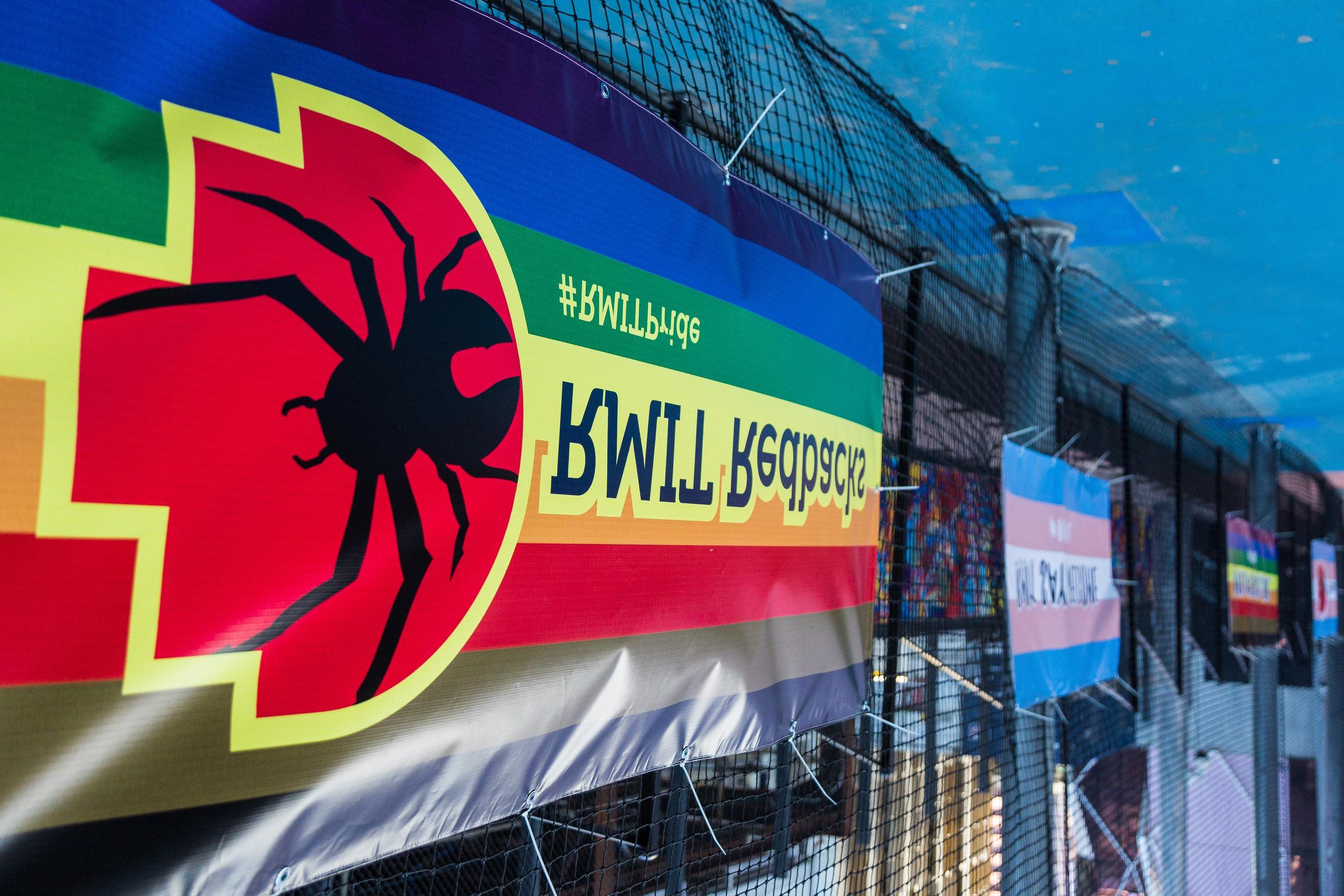
7
Policy and conduct Congruous with RMIT’s Diversity, inclusion and equal opportunity policy , Student Conduct Policy and Code of Conduct , RMIT Sport is committed to being a place where all people are recognised and welcomed, are free to be themselves and can bring their whole selves to work and study, and where all can benefit from the diversity of our community. RMIT Sport also commits to undertake actions to enhance inclusion in sport for staff, students and visitors with disabilities.
Purpose To provide an environment within RMIT Sport that promotes diversity and inclusion, equal opportunity and prevents discrimination. To ensure that all staff members and students are educated to recognise and prevent institutional or systemic issues that lead to discriminatory practices and/or behaviours that may constitute discrimination (including sexual harassment, victimisation, vilification, and bullying).
Scope These policies are inclusive of all students, staff, consultants, visiting researchers, contractors, third party suppliers, honorary appointments, visiting appointments are engaged in the activities with RMIT Sport.
RMIT Sport’s Inclusive Sport Commitment
Participation in RMIT Sport activities based on a person’s affirmed gender identity and not the sex they were assigned at birth.
Players will not be asked to undergo medical examinations for the purpose of gender verification.
Personal information will only be collected from participants if necessary, and any information that is collected will only be disclosed if necessary and in accordance with the law.
Any person choosing to affirm their gender while participating in a sport program will be supported with guidance from RMIT’s Gender Affirmation Guide, led by the individual and their needs. A person living with disability requiring adjustment to participate in a sports activity may seek support from the Inclusive Sport Champion.
Disclaimer: RMIT Sport is unable to guarantee and does not accept legal responsibility for sanctioned rules, policies or guidelines where a third-party club, organisation or sporting body is involved. If you have any concerns about your involvement in an event or activity, please contact an Inclusive Sport Champion for further advice and support.
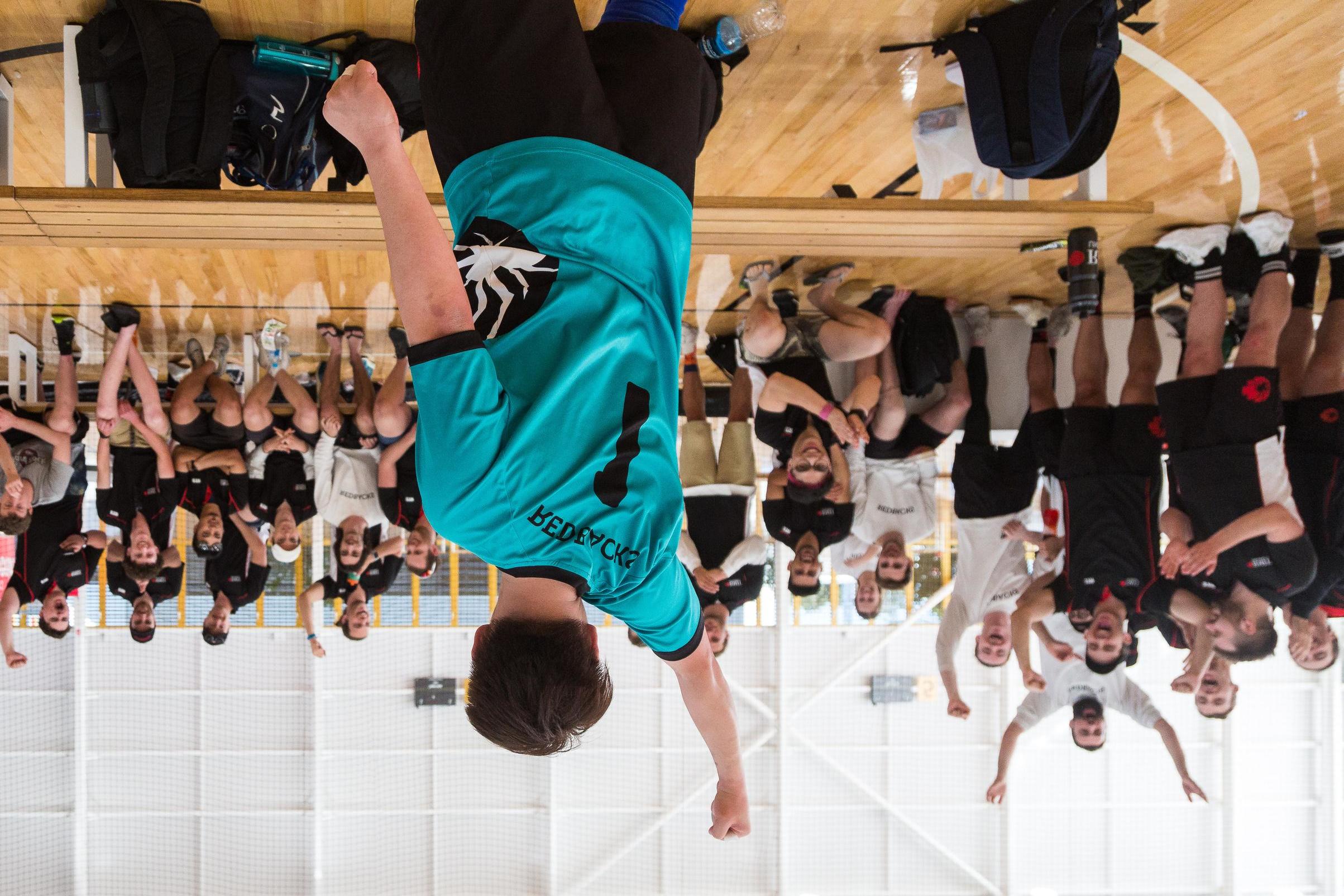
7
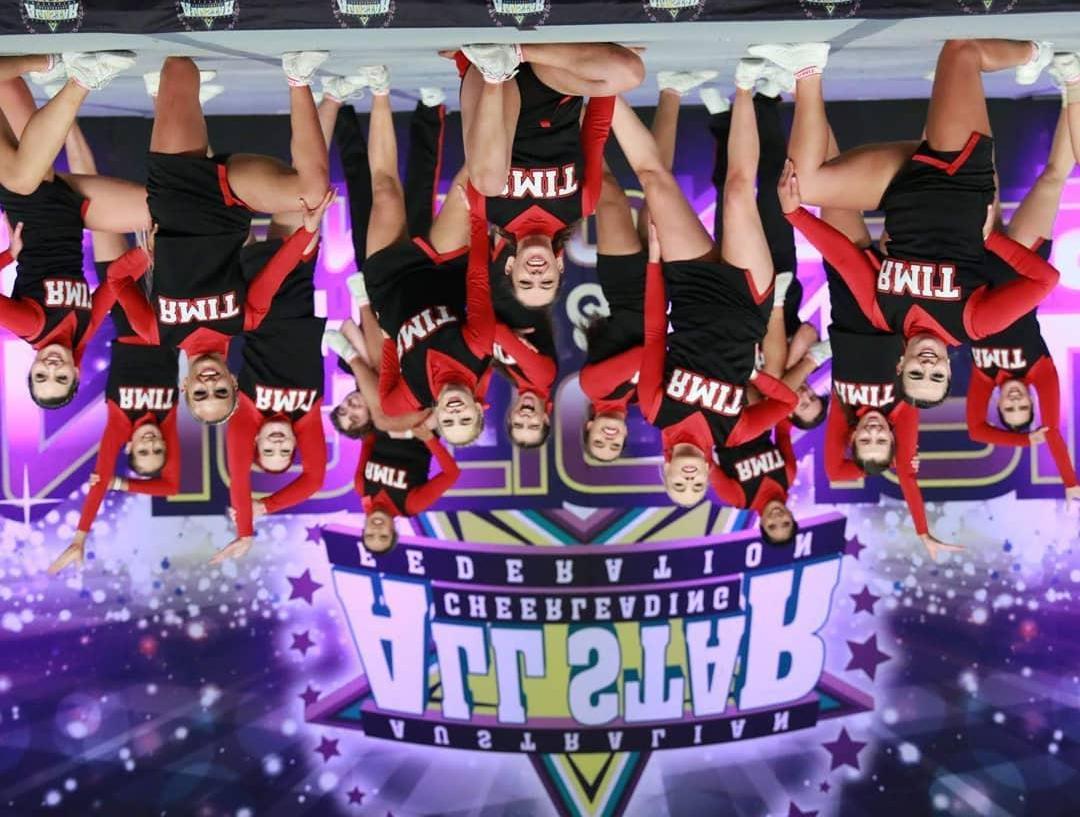
Dress code and uniform RMIT does not have a formal dress code but supports everyone to dress in attire that suits them, while allowing them to successfully play and compete. People who identify as trans, gender diverse, nonbinary or another gender identity are free to dress in a manner that affirms their gender identity.
Facilities All clubs can book facilities within the City and Bundoora campuses, such facilities are available to student clubs at minimal or no cost. Gendered and all-gender facilities may be used by individuals according to their affirmed gender.
If you are hosting an event at a physical space, it is worth considering how physically accessible the venue or site is not only for your players but also your spectators. Especially if you do not know who will be attending. Some things you might want to consider:
Does the venue have a ramp at entries? Does it have lift access? Does it have a ramp at entries and up the stage? Is the placement of your table and chairs wheelchair accessible? Are there all-gender and mobility accessible toilet facilities and change rooms?
Learn more: Inclusive Events Checklist link to pdf ___
If you are hosting a large-scale event, it is worth considering creating a ‘chill out’ space so that your guests can find refuge from amplified noise and a potentially overwhelming environment. These spaces usually have comfortable seating and little to no noise allowing for a break from busy and loud environments but also the opportunity for attendees to manage sensory overload.
Hosting an event at a venue off campus may involve investigating what sort change room and toilet facilities are available. Although RMIT’s accessible campus map clearly shows where all-gender bathrooms are located this may not be the case for an unfamiliar venue.
7
Zero Tolerance RMIT Sport has zero tolerance for any form of bullying, harassment and/or discrimination and believes that everyone regardless of sexual orientation, gender identity or ability has the right to play, participate, coach, work and spectate.
Discrimination because of gender identity, sexuality, sex or intersex characteristics, meaning the treatment of one person less favourably where they would be treated differently without any or all the above attributes.
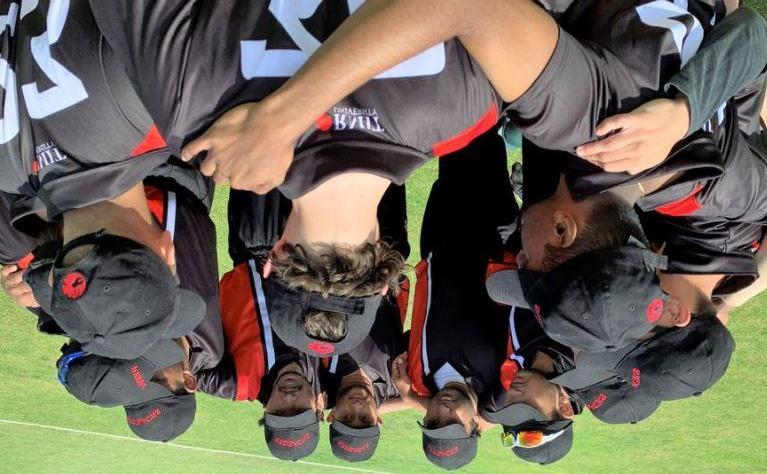
Bullying and/or harassment motivated by homophobic, biphobic, transphobic and/or interphobic or ableist attitudes include a range of behaviour such as:
Verbal abuse Hate mail and cyberbullying Obscene telephone calls Escalating to threatening behaviour Physical attacks
An intentional breach of privacy and confidentiality including:
Threatening to ‘out’ an individual.
Spreading harmful rumours about another individual based on gender identity, sexuality, sex or intersex characteristics; and/or
Knowingly deadnaming and misgendering an individual.
Example 1: Discrimination (direct)
A club committee refuses to allow a player to participate in their women’s community tennis club after hearing that the player is gay.
A sports trainer refuses to treat an intersex person because the patient’s biological characteristics made the trainer uncomfortable.
A facility manager chooses not to hire an openly transgender man for a personal trainer position because they believe this will make clients uncomfortable.
A player consistently chooses not to include an athlete from external matches because they believe the players disability will hinder them from winning the game.
7
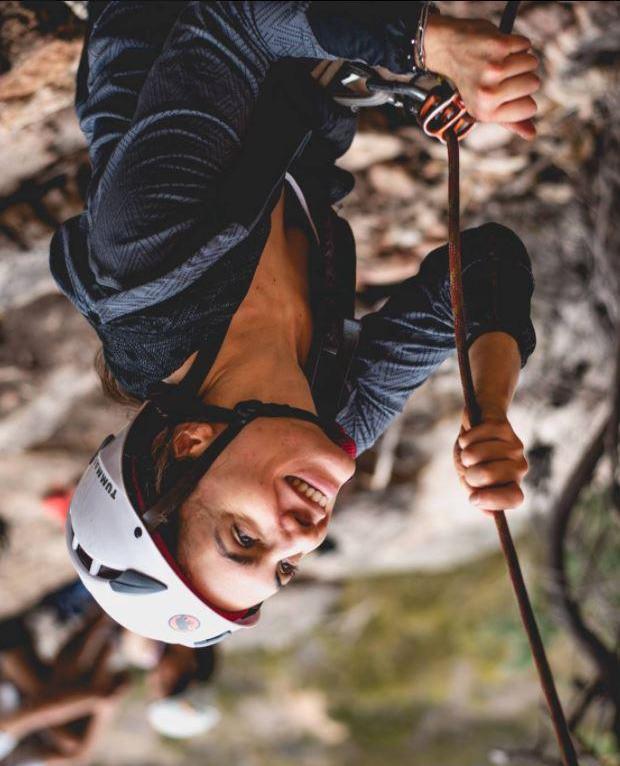
Example 2: Discrimination (indirect)
A gym facility does not allow new members to complete sign up without disclosing their gender identity and does not provide options beyond ‘male’ and ‘female’.
A sporting club offers free membership for husbands and wives but not civil unions.
A gym advertises ‘women only’ fitness classes and does not clarifying whether intersex, transgender or non-binary women are welcome.
A club organises a meeting at a venue without accessible entry so that a wheelchair user is unable to attend the meeting.
Example 3: Bullying and harassment
Upon finding out someone on their team is proudly bisexual, a player starts using biphobic language and casually making jokes about bisexual people whenever this person is around.
A spectator learns of an athlete’s trans history and begins to send them anonymous transphobic emails and messages through social media channels.
Upon finding out an athlete on their team is intersex a group of people threaten physical attacks unless the player quits.
A player consistently teases a deaf player when they miss the ball assuming they are not able to understand the bullying because it cannot be heard.
Example 4: Breach of privacy and confidentiality
A club member blackmails another player in their sports team into underperforming during a qualifying match, threatening to ‘out’ them as lesbian.
A player finds out one of their peers uses a chosen name (different to their legal name) to affirm their gender and shares this information with others in the team.
An athlete refuses to compete and when asked why by the coach discloses that a competing athlete is a woman with an intersex variation.
A coach introduces a new player to the team and discloses that they are a person with autism, assuming this could affect their participation.
8
Where to find support and incident reporting RMIT Sport works closely with the Student Wellbeing and Inclusion team to ensure our projects, initiatives and events are inclusive. Whether you want to find out more about RMIT’s Inclusive Sport programs, ask about support services available for DGSS related issues, would like to discuss adjustments to enable participation or would like to speak with an ally regarding homophobia/transphobia/biphobia/interphobia specific bullying, harassment and/or vilification or ableist discrimination, support is available.

If you or someone you know has been harassed, bullied or discriminated against you may choose to follow any of these steps:
Discuss the incident or behaviour with: -a Diversity and Inclusion Advisor -an Inclusive Sport Champion -a club committee member
Make a formal complaint
Contact RMIT Safer Community
Lodge an incident report through your club
Further information on reporting:
A person may report any discrimination (direct and indirect), bullying or harassment they experience or witness based on: -Sex, gender identity or DGSS related issue -Ability or neurodiversity -Culture, race or ethnicity
Reports may be made within an indefinite length of time after the incident has occurred.
As far as possible, confidentiality will be respected.
8
Contacts Riley Edwards (they/them), Advisor Diversity and Inclusion (Students Group) Riley.edwards@rmit.edu.au, 03 9925 9274
Maci Hamdorf (she/her), Diversity and Inclusion Advisor (People Team) Maci.hamdorf@rmit.edu.au 03 9925 2367
Sarah Mckenna (she/her), Sport Participation Officer and Inclusive Sport Champion sarah.mckenna@rmit.edu.au, 03 9925 9626
RMIT Student Support RMIT Mental Wellbeing and Counselling is free for all currently enrolled RMIT students, including students on approved Leave of Absence. All counsellors have participated in RMIT Ally Training.
Safer Community provides support and advice to students and staff concerned about threatening or inappropriate behavior.
RMIT Chaplaincy provides help and spiritual support for students of all faiths and none. You do not need to be a person of faith to get support.
Equitable Learning Services provides support and equal opportunities for students with a disability, long-term illness and/or mental health condition and primary carers of individuals with a disability.
DGSS at RMIT is a dedicated website for all things LGBTQ+ at RMIT including downloadable resources, essential contact information and most up to date information on events and programs.
RMIT University Student Union (RUSU) is 100% student run organisation home to departments such as RUSU Queer, Sustainability, Events, Student Rights and Welfare and Education.
Medical Hub @ RMIT provides a leading healthcare service to the RMIT community and Melbourne’s CBD by providing an environment for dedicated physicians and staff to deliver a holistic approach to primary health.
RMIT Together keeping students connected and together whilst in online environment. The Facebook group has created a community to keep engaged.
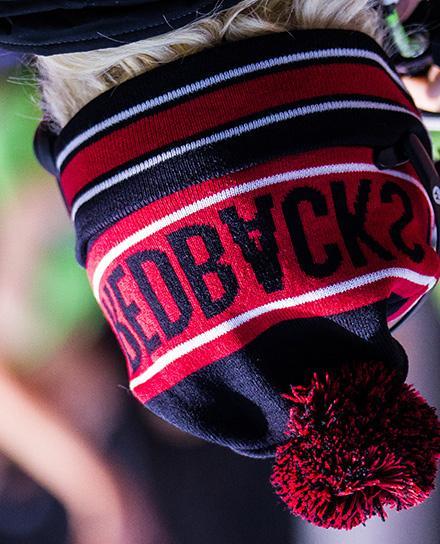
8
External counselling and support: Switchboard Victoria (Victorian Partner of QLife Australia) 1800 184 527 (6pm - 10pm, everyday) qlife.org.au (3pm - midnight, everyday)
Thorne Harbour Health 1800 134 840 thorneharbour.org
Queerspace / Drummond street services (03) 9663 6733 ds.org.au
Beyond Blue 1300 224 636 https://www.beyondblue.org.au/
Additional support and resources: Ngarara Willim Centre 9925 4885 ngarara.willim@rmit.edu.au
Disability Sport & Recreation 9473 0133 info@dsr.org.au
Links and Grant Opportunities This Girl Can - https://thisgirlcan.com.au/
Sport and Recreation Victoria - https://sport.vic.gov.au/grants-and-funding
